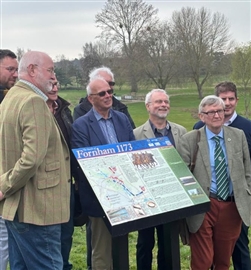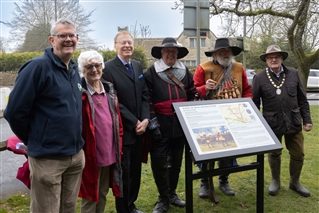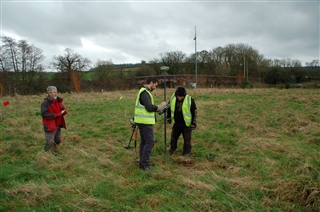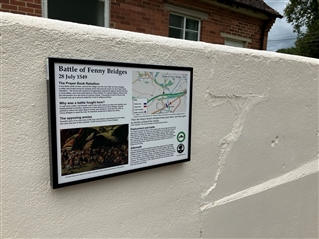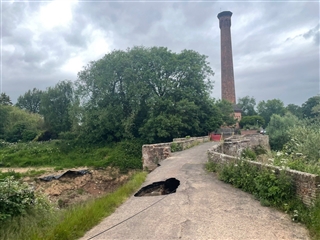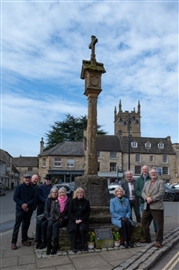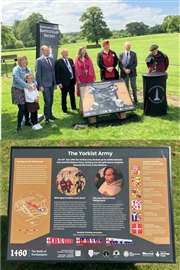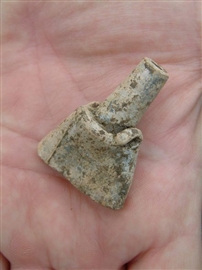News
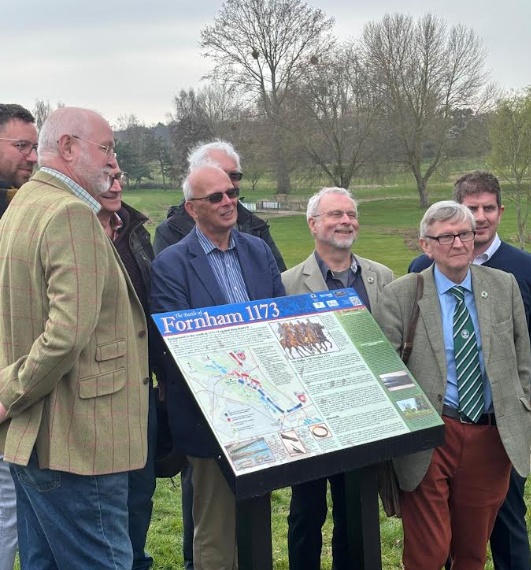
Two new battle interpretation boards unveiled at Fornham, Suffolk
30 March 2025
Tuesday 25th March 2025 saw a group of 20 hardy souls unveil two information boards on the site of The Battle of Fornham St Genevieve - 17th October 1173.
Fornham is the site of East Anglia’s greatest loss of life in a battle.
The Boards have been funded by Suffolk County Council and delivered in partnership with West Suffolk Council and the All-Saints Hotel, where most of the battle took place.
Following short speeches from BT East Anglia Region Coordinator, Robert Simmons, manager Joshua Harris of All Saints Hotel, and Director of BT Operations David Austin, the group moved inside the hotel for a short presentation on the battle itself from Dr M J Walker, author, ‘A Hard and Grievous Battle: The Siege of Haughley Castle and the Battle of Fornham in 1173’.
The Battle of Fornham was a major part of the Revolt of 1173-74 against the founding Plantagenet King, Henry II (King of England from 1154 until his death in 1189). The Battle was fought surrounding the valley of the River Lark about 3 km to the north of Bury St. Edmunds near the church of St. Genevieve, on the eastern side of the River Lark on 17th October 1173.
Robert de Beaumont, 3rd Earl of Leicester led an army of at least 4,000 troops against troops loyal to King Henry II. The King’s forces won the battle and most of the rebel army were killed on the battle site.
The Battle of Fornham in 1173 is one of the most important and decisive medieval battles to have taken place in England, and it is exceptional in that, unlike almost all other medieval battles, we know precisely where it took place and who was there. The new Battlefield Trust information boards provide comprehensive and succinct analysis and are a significant step in the rehabilitation of this ‘forgotten’ battle. These boards show visitors to the site not only what happened, and how the terrain was so instrumental in the outcome, but also how significant Henry II’s Judiciar, Richard de Lucy’s comprehensive defeat of the Earl of Leicester’s Flemish mercenaries was a turning point in the Great Revolt against the King.
After the presentation a smaller group faced the increasingly drafty weather for a short tour of the battle site.
The event has had extensive press coverage from the local BBC and media and the work undertaken by the Trust has created a lot of local interest and surprise that this corner of Suffolk should have such an important part to play in our history.
See this link: https://www.bbc.co.uk/news/articles/c5y216vpd74o
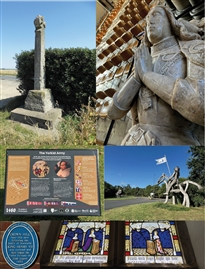 Wars of the Roses Memorial Database Launched
Wars of the Roses Memorial Database Launched
29 March 2025
Read More
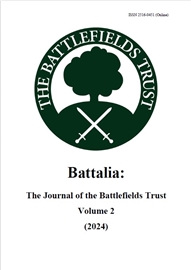 Battlefields Trust Journal 2024 Published
Battlefields Trust Journal 2024 Published
19 March 2025
Read More
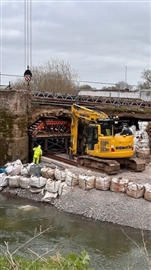 Powick Old Bridge repairs progressing
Powick Old Bridge repairs progressing
18 March 2025
Read More
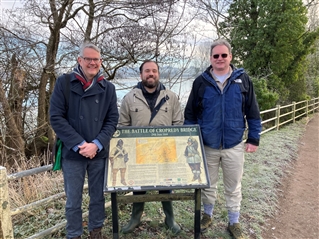 Battlefields Trust enlists cross party MP support to engage government on battlefield protection
Battlefields Trust enlists cross party MP support to engage government on battlefield protection
20 January 2025
Read More
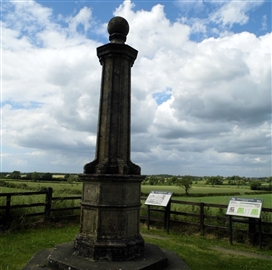 Naseby Battlefield Project awarded substantial grant by the National Heritage Lottery Fund
Naseby Battlefield Project awarded substantial grant by the National Heritage Lottery Fund
17 December 2024
Read More
 Prayerbook Rebellion battlefields added to the Battlefields Hub
Prayerbook Rebellion battlefields added to the Battlefields Hub
7 September 2024
Read More
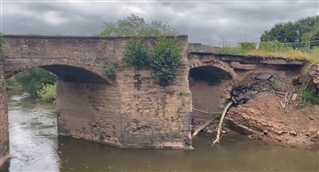 Work begins to repair Powick old bridge
Work begins to repair Powick old bridge
27 August 2024
Read More
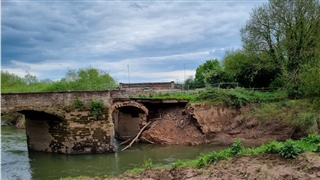 Update on plans to repair Old Powick Bridge
Update on plans to repair Old Powick Bridge
18 July 2024
Read More
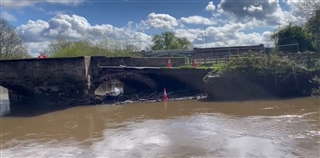 Collapse of Powick Bridge
Collapse of Powick Bridge
15 April 2024
Read More
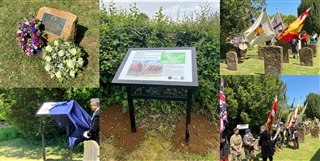 New Civil War battlefield memorial and information board unveiled at Middleton Cheney
New Civil War battlefield memorial and information board unveiled at Middleton Cheney
6 June 2023
Read More
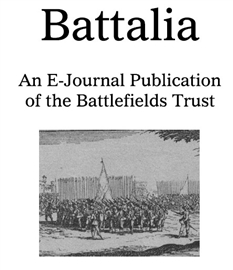 Battlefields Trust Journal - Call for submissions
Battlefields Trust Journal - Call for submissions
20 October 2022
Read More


